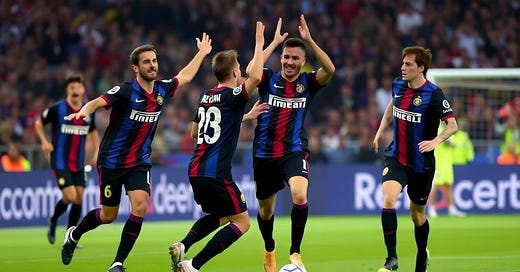Can Inter's stunning comeback redefine football rivalries forever?
El Inter de Milán logró una remontada épica contra el Barcelona, desafiando expectativas y asegurando su lugar en la final.
Inter Milan pulled off an unforgettable comeback against Barcelona, sealing their spot in the Champions League final.
This clash highlighted the intense rivalry between two football powerhouses, with Inter rising to the occasion and rewriting expectations.
What does this mean for …
Keep reading with a 7-day free trial
Subscribe to Spanglish™ Soccer Edition to keep reading this post and get 7 days of free access to the full post archives.




